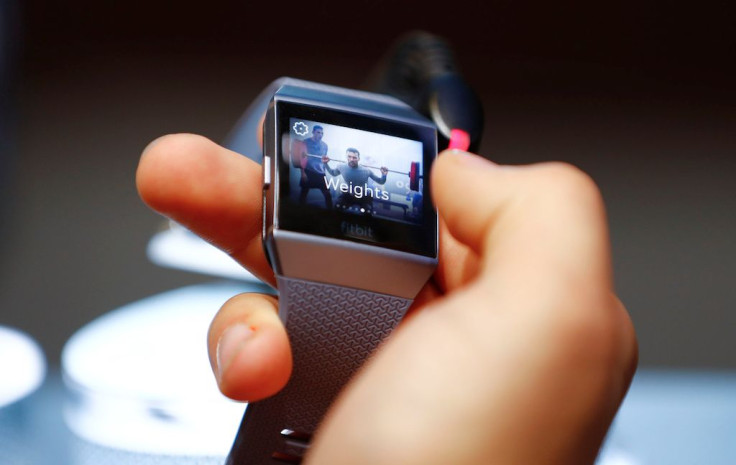Google’s Takeover Of Fitbit Faces Another Regulatory Hurdle

Alphabet's (NASDAQ:GOOG) (NASDAQ:GOOGL) Google agreed to buy wearables maker Fitbit (NYSE:FIT) for $2.1 billion last November. It initially seemed like a win-win deal: Google would strengthen its wearables presence to counter Apple (NASDAQ:AAPL), and Fitbit would be salvaged after years of decelerating sales growth.
Yet the deal alarmed some consumers and privacy advocates, who worried that Google would mine Fitbit's user data to craft targeted ads. Both companies declared that wouldn't happen, but some Fitbit users still deleted their accounts and dumped their devices.
In December, the New York Post claimed that the Department of Justice could look into the acquisition and the privacy concerns regarding Fitbit's health data. The investigation would reportedly mark an expansion of the broader antitrust probe of Google by the DOJ that started last September.
Those developments already cast a dark cloud over the deal, but another hurdle recently appeared when Dutch electronics giant Koninklijke Philips (NYSE:PHG) claimed that Fitbit, Garmin (NASDAQ:GRMN), distributor Ingram Micro, and two Chinese manufacturers had violated its patents.
That complaint caused the U.S. International Trade Commission to launch a new investigation into all four companies. Could this spell even more trouble for Google's plans to buy Fitbit?
What is Philips' argument?
Philips claims that Fitbit and Garmin's wearable devices infringed on its activity tracking, alarm reporting, and motion sensing patents. The company claims it had been negotiating settlements with the companies for three years before the talks collapsed.
If the ITC sides with Philips, Fitbit and Garmin's products could face high tariffs or complete sales bans on all disputed products. In the past, companies have often used ITC rulings to force other companies into settlements instead of slugging it out in longer civil suits.
Speaking to Reuters, a Fitbit spokesperson stated that the claims were "without merit and a result of Philips' failure to succeed in the wearables market." Philips previously entered the wearables market with its Health Watch in 2016, but the device failed to stand out in a crowded market which was dominated by Apple, Xiaomi, Samsung, and Huawei.
Phillips has repeatedly leveraged its patent portfolio to launch lawsuits at other companies, including Nintendo (OTC:NTDOY) and Lowe's (NYSE:LOW), sparking widespread allegations that it was becoming a "patent troll."
Those lawsuits bore mixed results. Some instances, like its case against Lowe's and other companies over LED lights, were terminated by the ITC. Others, like its case against Nintendo over motion sensors in its Wii hardware, resulted in settlements. Therefore, there's a significant chance that Philips could force Fitbit and Garmin into unfavorable settlements.
What does this mean for Google?
The DOJ and ITC probes will likely delay Google's planned takeover of Fitbit, which was expected to close this year. Google agreed to buy Fitbit for $7.35 per share in cash, but the pressure from regulators and Fitbit's own disappointing quarterly results could cause the stock to slide lower before the deal closes.
Those delays could also make it tougher for Google to execute its post-Fitbit wearable plans. Fitbit already tethers its users' data to Google Cloud, so the takeover should lead to the full integration of Fitbit's data into Google's ecosystem -- even if it isn't used for targeted ads.
That combination would complement Alphabet's other life science ventures, including Verily, which develops AI solutions, medical devices, and wearable devices for healthcare applications; and Calico, which is researching treatments for age-related diseases. It would also complement Wear OS, its operating system for smartwatches, and Google Fit, its mobile dashboard for fitness apps.
All those moves would widen Google's moat against Apple and other tech giants in the growing digital health market. However, these regulatory headwinds indicate that investors should expect significant delays before the deal closes -- which could cause Google to fall further behind Apple and other market leaders in the wearables race.
Suzanne Frey, an executive at Alphabet, is a member of The Motley Fool's board of directors. Leo Sun owns shares of Apple. The Motley Fool owns shares of and recommends Alphabet (A shares), Alphabet (C shares), Apple, and Fitbit. The Motley Fool recommends Lowe's and Nintendo. The Motley Fool has a disclosure policy.
This article originally appeared in The Motley Fool.





















